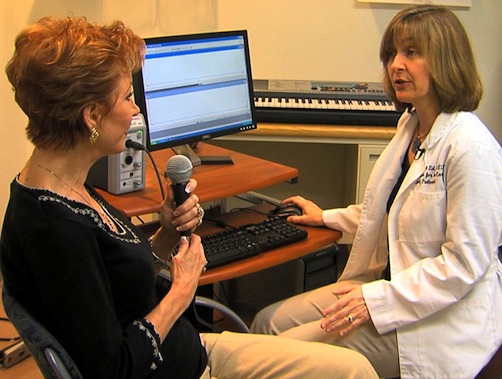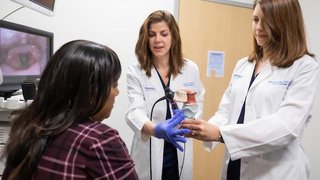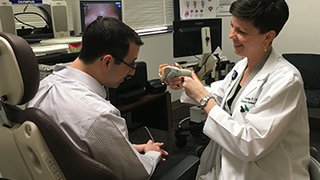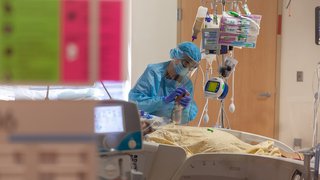Search for opportunities to participate in a clinical research study.
Vocal Tremor
New Patient Appointment or 214-645-8300
MedBlog
Results: 2 Locations
Otolaryngology
at UT Southwestern Monty and Tex Moncrief Medical Center at Fort Worth 600 South Main Street, 2nd Floor, Suite 2.800Fort Worth, Texas 76104 817-882-2430 Directions to Otolaryngology at UT Southwestern Monty and Tex Moncrief Medical Center at Fort Worth, Fort Worth Parking Info for Otolaryngology
Otolaryngology Clinic
at West Campus Building 3 2001 Inwood Road, 6th and 7th FloorDallas, Texas 75390 214-645-8898 Directions to Otolaryngology Clinic at West Campus Building 3, Dallas Parking Info for Otolaryngology Clinic











